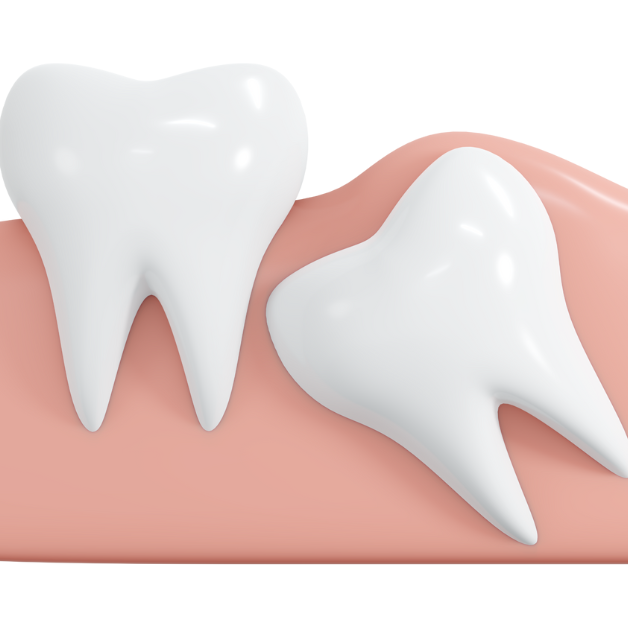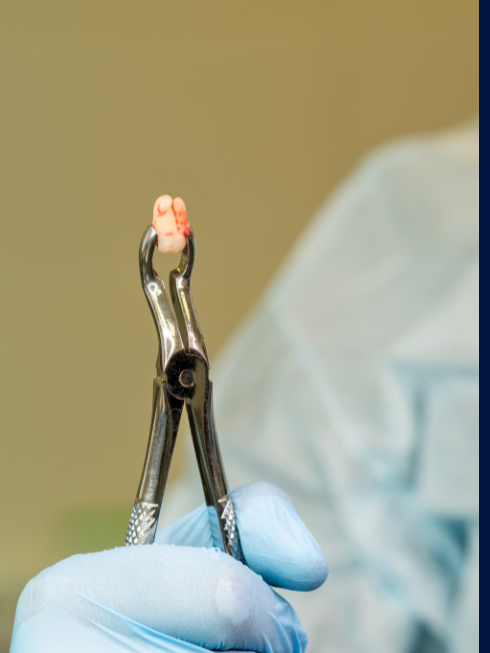Wisdom Teeth Removal
Wisdom teeth, also known as the third molars located at the back of the mouth, may not require extraction if they meet the following criteria:
- They are healthy.
- They have fully grown in.
- They are positioned correctly and biting properly.
- They can be cleaned daily.
However, wisdom teeth often do not have enough space to grow properly, leading to possible issues. They may develop at varying angles within the jaw, occasionally even horizontally.

When should wisdom teeth be removed?
Typically, the extraction of wisdom teeth is done during early adulthood, usually between the ages of 15 and 22. It is considered to be a safer, simpler, and quicker recovery process compared to removing wisdom teeth at a later stage in life. This is due to the fact that the roots of the teeth are not fully developed, the jawbone is less dense, and the healing process after surgery is generally faster. Consequently, it is common for young adults to undergo wisdom teeth extraction as a preventive measure before any issues arise.
As per the guidelines provided by the American Dental Association, the extraction of wisdom teeth may be necessary if you experience any of the following conditions:
- Discomfort or pain in or around the wisdom teeth.
- Gum disease.
- Frequent infections in the soft tissue located behind the last lower tooth.
- Presence of cysts, which are fluid-filled sacs.
- Tumors.
- Damage to neighboring teeth.
- Severe dental decay.
What does it mean when a tooth is impacted?
Impaction occurs when a tooth fails to fully emerge from the gums. Wisdom teeth can experience impaction at various levels:
- In cases of hard tissue (bony) impaction, the tooth remains within the bone. This can be either partial or complete.
- Soft tissue impaction refers to a situation where the top of the tooth is above the bone and is only covered by gum tissue.
Wisdom teeth can grow in various directions. They can grow straight up and down, sideways, or at an angle. The angle can be away from other teeth or towards other teeth.
What occurs during the extraction of wisdom teeth?
- To examine your wisdom teeth, we will capture x-ray images of your mouth. During a single procedure, most individuals opt to have all four teeth extracted.
- Local anesthesia will be injected to numb the area where the tooth or teeth will be extracted (you will remain conscious).
- If needed, we offer sedation anesthesia known as nitrous oxide or “laughing gas” which is a gentle sedative agent that safely and effectively manages pain and anxiety during dental treatment.
One of our experienced dentist will make an incision in the gum tissue to remove the tooth. In certain cases, it may be necessary to remove bone tissue that is obstructing the tooth. - The tooth will be extracted, and if needed, it may be divided into smaller pieces for easier removal.
- We will then suture the wound.
How to recover from wisdom teeth extraction
To increase the odds of a successful recovery, adhere to the following recommendations:
- Frequently replace the gauze pad covering the wound.
- Apply an ice pack to minimize swelling.
- Refrain from consuming alcohol, smoking, and engaging in physical activity.
- Gently rinse with warm salt water to help neutralize bacteria.
- Avoid using a straw
- Maintain regular brushing and flossing habits to prevent the accumulation of food particles and harmful bacteria in your mouth. Be cautious not to brush the wound


